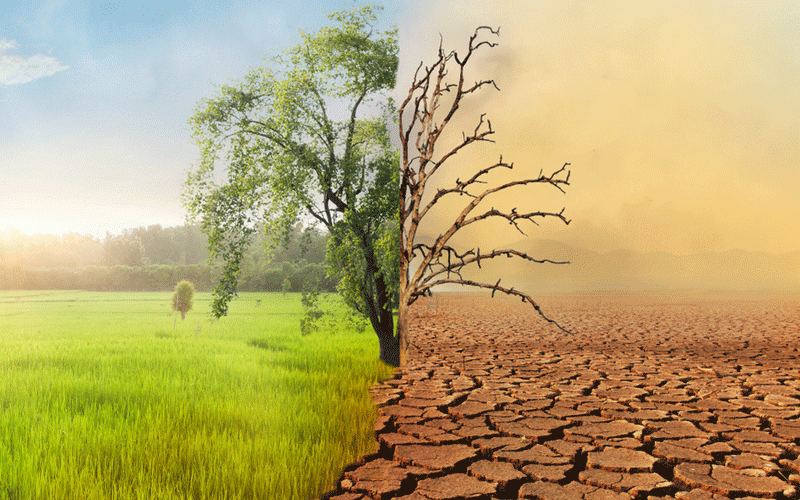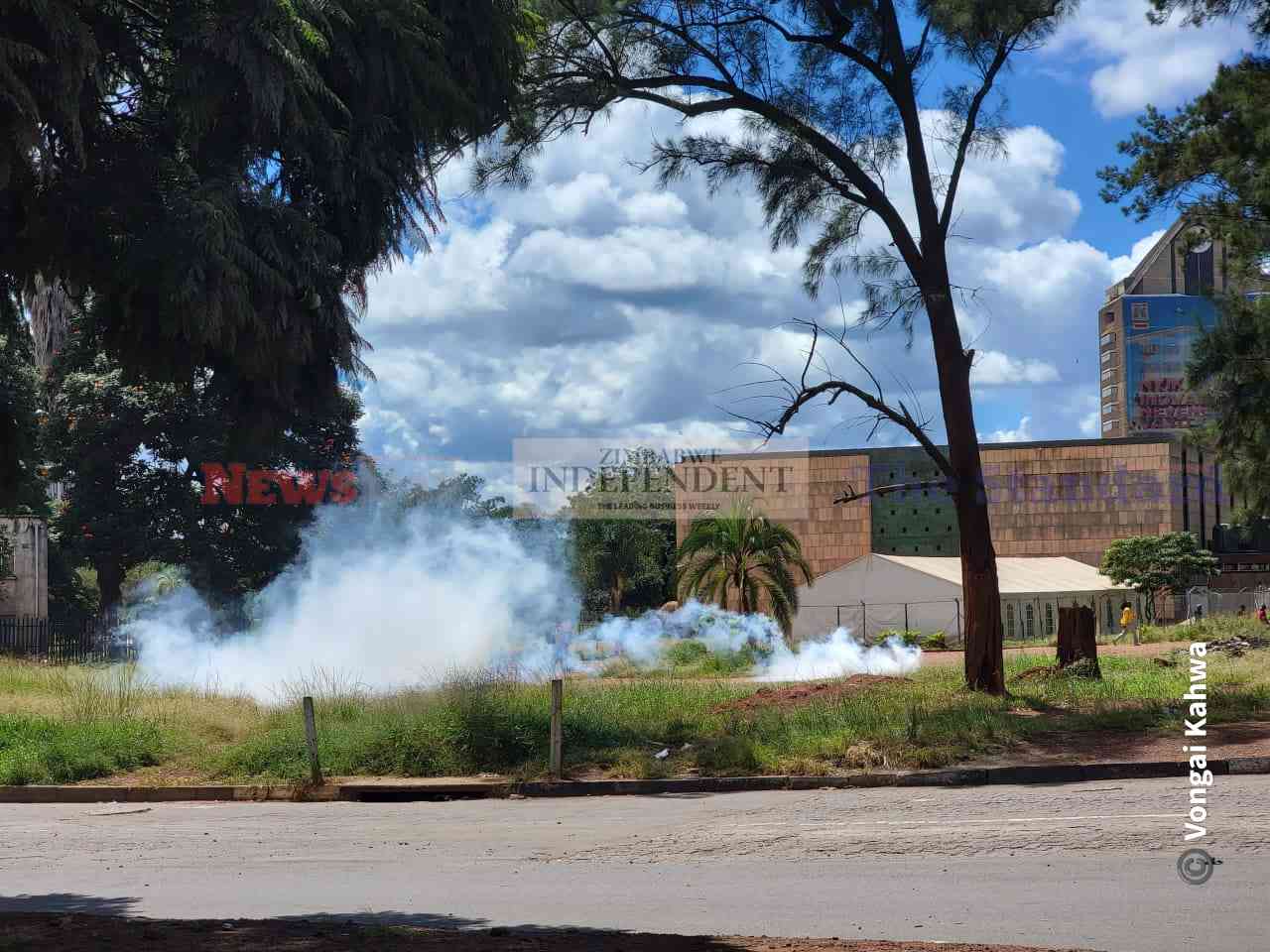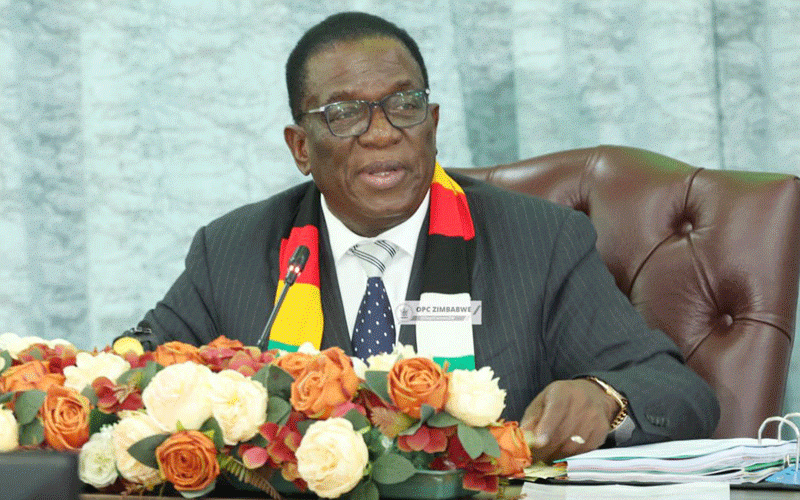
CLIMATE breakdown, emergency and chaos are taking centre-stage because environmental ethics are being thrown into the dustbin, while greenwash rules, bringing normalcy into the climate sector become more challenging than ever before.
Although stakeholders have tried their best to address the impacts of climate, they cannot be addressed through false solutions. Therefore, the most needed land restorations are just a mirage and pipe dream.
Many climate change narratives are too vocal about cutting down carbon emissions, but are conspicuously silent about land restorations. Land restorations are key to climate revival and regenerations, but they are not getting the attention they deserve. The global landscapes can only be restored through ethical climate initiatives and correct solutions, which are the living truth, community driven and people centred.
False climate solutions can be generally viewed as initiatives that pretend to address key climate issues, while they serve to perpetuate the unsustainable status quo or even worse, through violating nature’s rights. Through leading global corporates and many governments, land restorations have been captured, falsified and greenwashed. That is why many degraded and deforested landscapes have not been regenerated to the expectations of the public.
The world community of nations is two months away to gather as per their yearly routine, in Baku, Azerbaijan, for the COP29, to continue with their emission reduction narratives while backgrounding global forest regenerations. Although it has been easier said than done ever since, protecting the natural ecosystems has never been easy, it requires real climate action, not drama, pretense, grandstanding or disinformation. The global degraded landscapes cannot be reforested through lies, greenwashing, disinformation and double-speak. As usual, the outcome at COP29, will be more of a political settlement than environmental. This is the deliberate mistake that those in control of the summit always come up with.
Africa is losing millions of trees every year and these forests need to be replaced not through captured corporate programmes, but through genuine community driven and people-centred initiatives. While global emission reductions are key and transformative, forest restorations should take centre stage too, as they would be sources for carbon sinks. In the unlikely situation where forest regenerations succeed then that will be the beginning of climate wisdom.
Objectivity is needed in this scenario because that is what people want, that is good for the environment, morals and ethical considerations. The only obstacles are the global corporate monsters who desperately want to be climate relevant by taking the world for granted through double-speak and misinformation to protect their corporate interests. They do this in ways that leave the global community of nations in a quandary.
The planet will never be safe if restoration talk is not supported by concrete action on the ground. Many leading polluting countries and corporates are wilfully participating in global biodiversity loss while investing so much in rhetoric, linguistic massaging and green propaganda.
- Why are we still pitting jobs against public health?
- Jurgen Klopp: Liverpool manager signs new two-year contract extension at Anfield until 2026
- COP27: Zimbabwe’s opportunity to shine
- Shot in the arm for Chiredzi, Bikita communities
Keep Reading
People and community-driven restorations are not only possible using exotic tree species but also locally conducive and available tree species tolerant to the local environments. Some of the challenges with reforestation include entrusting businesses and politicians to plant trees instead of local people, using their local indigenous knowledge systems. This is also important in the sense that, when trees are planted, the locals will be there to monitor them even after the departure of the corporates.
Communities should just grow trees as usual and issues of carbon removals or sequestrations should come later when trees will be mature and getting managed. Furthermore, growing trees should be an on-going process not a timely nor a rigorous science lesson, designed to scare away locals. Inclusion of local communities is key as it helps in uplifting rural communities in any given country. These initiatives will prepare locals for sustainable use of their natural resources to increase their livelihood options.
This is the time to discard internationally-driven false solutions and guard against green propaganda. False solutions always attract lots of funding because their drivers want to prove a point and divert people’s attention from real climate action strategies and change focus.
Regrettably, local communities lack sustainable voices and legal recognition, that is why they are a battleground for abuse by their own governments, local businesses and international corporates. Public-private partnerships are there for window-dressing purposes, palliative care and lip service, just to hoodwink unsuspecting locals.
Local communities need biodiversity knowledge, information, education and awareness for community regeneration programmes. Education, communication and awareness are key in driving communities out of poverty, ignorance and abuse. Community participation in reforestation can reduce biodiversity loss thereby transforming ecosystems. These will at the same time address SDG15 (life on the land) and SDG17 (partnerships for the goals) while supported by SDG13 (climate action).
Above all, reforestation will enable communities to build resilience against climate change and make fighting climate-induced disasters a high priority. Restoring the world’s forests is the right way to help nations safeguard the future of the planet and people’s future as well.











